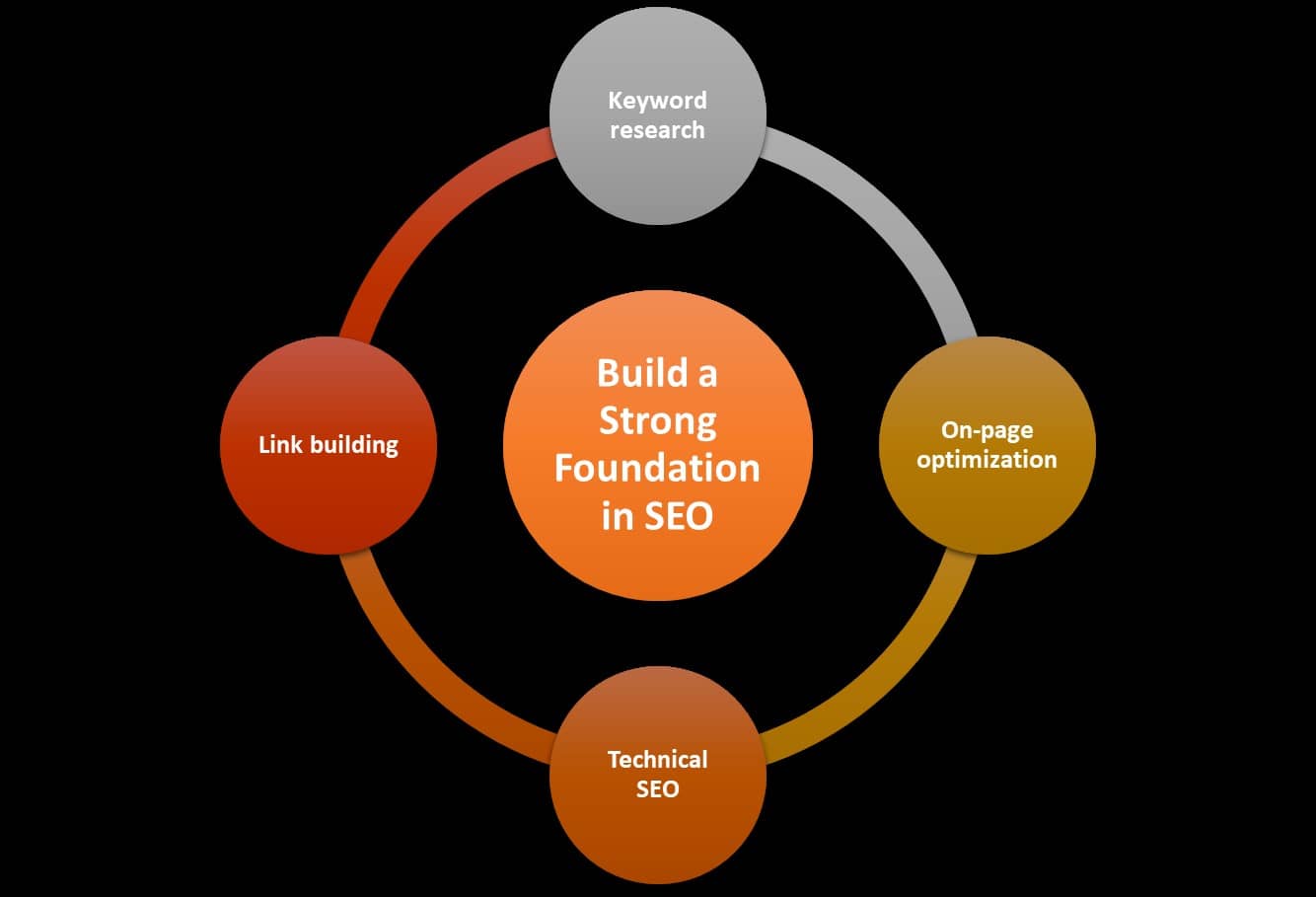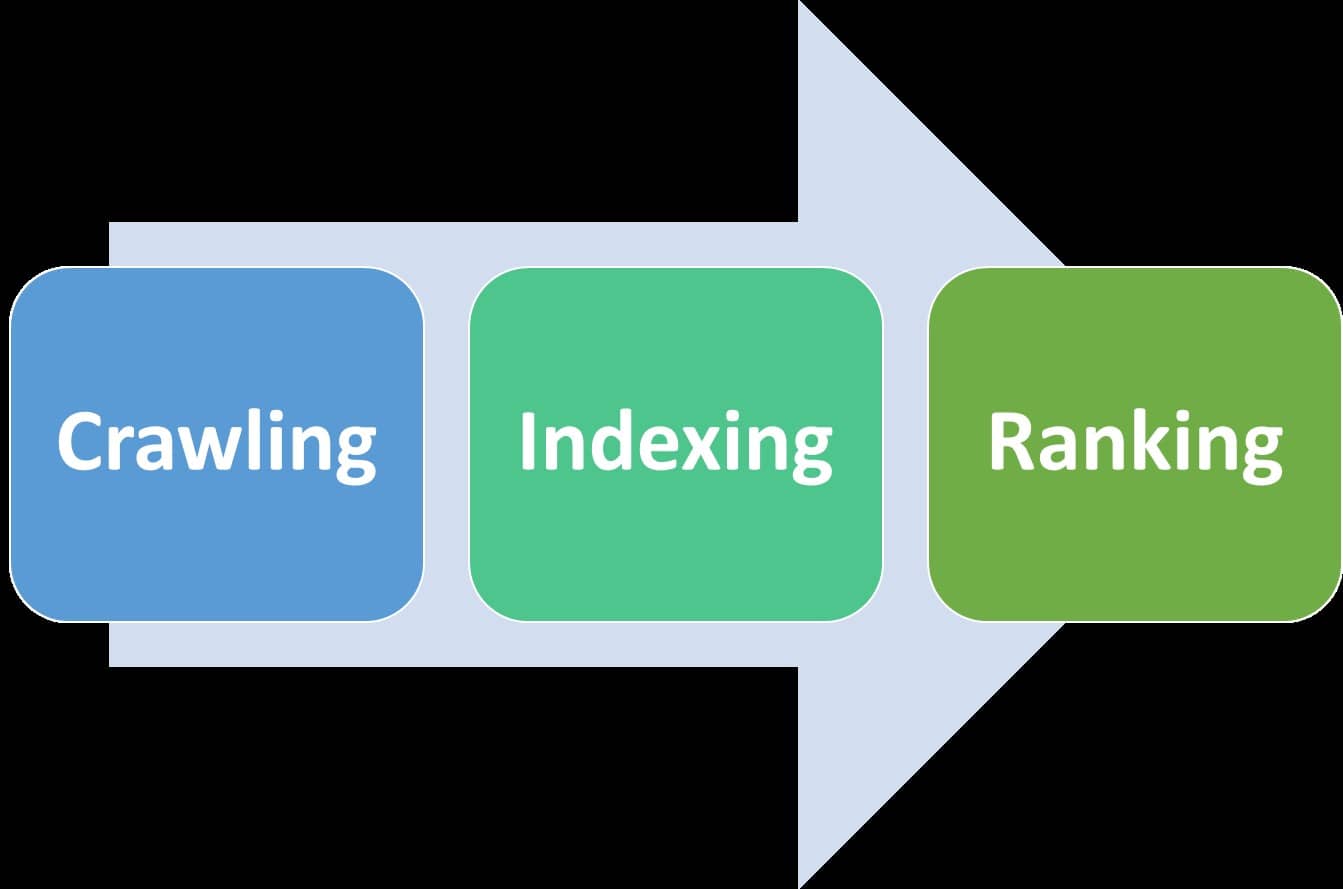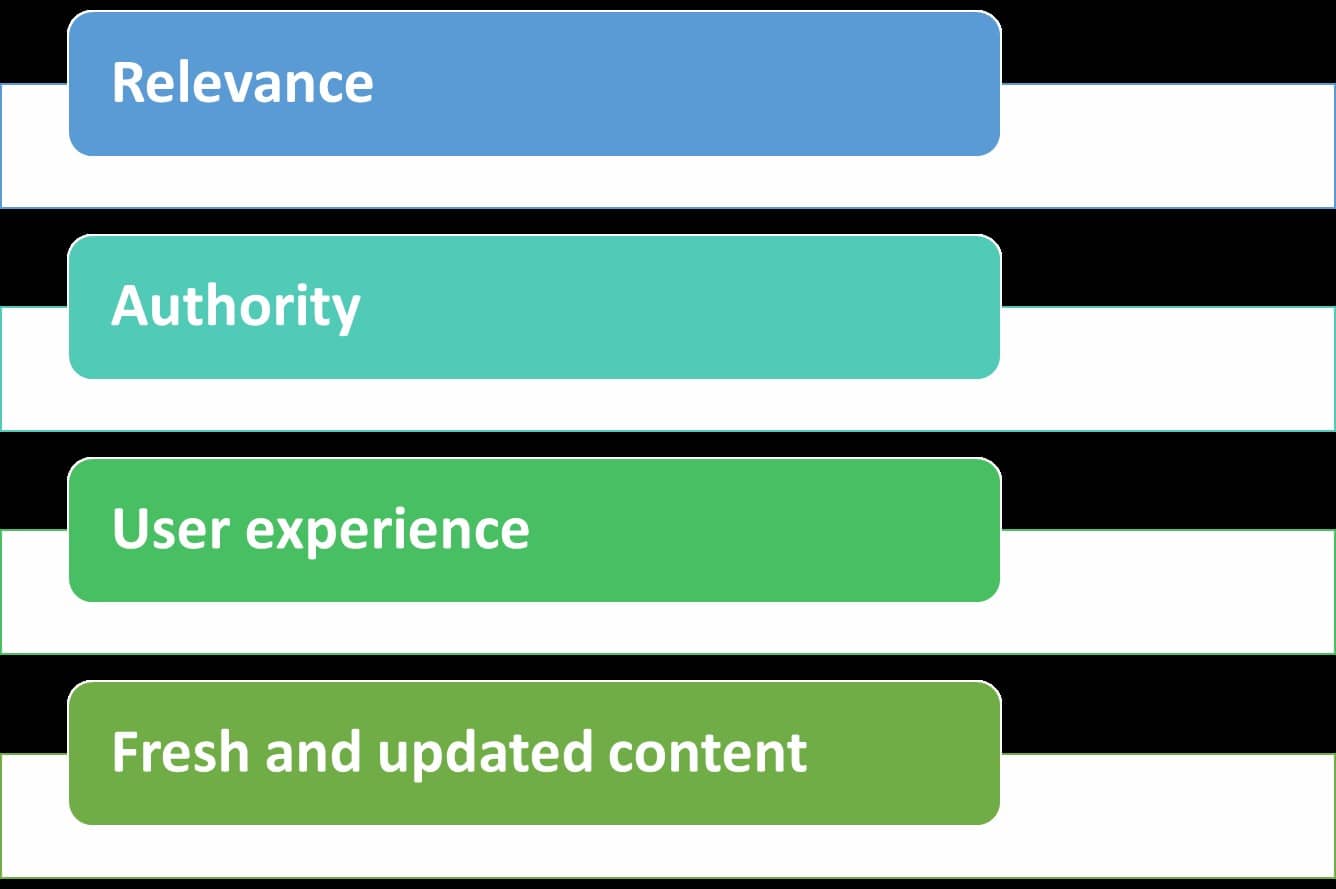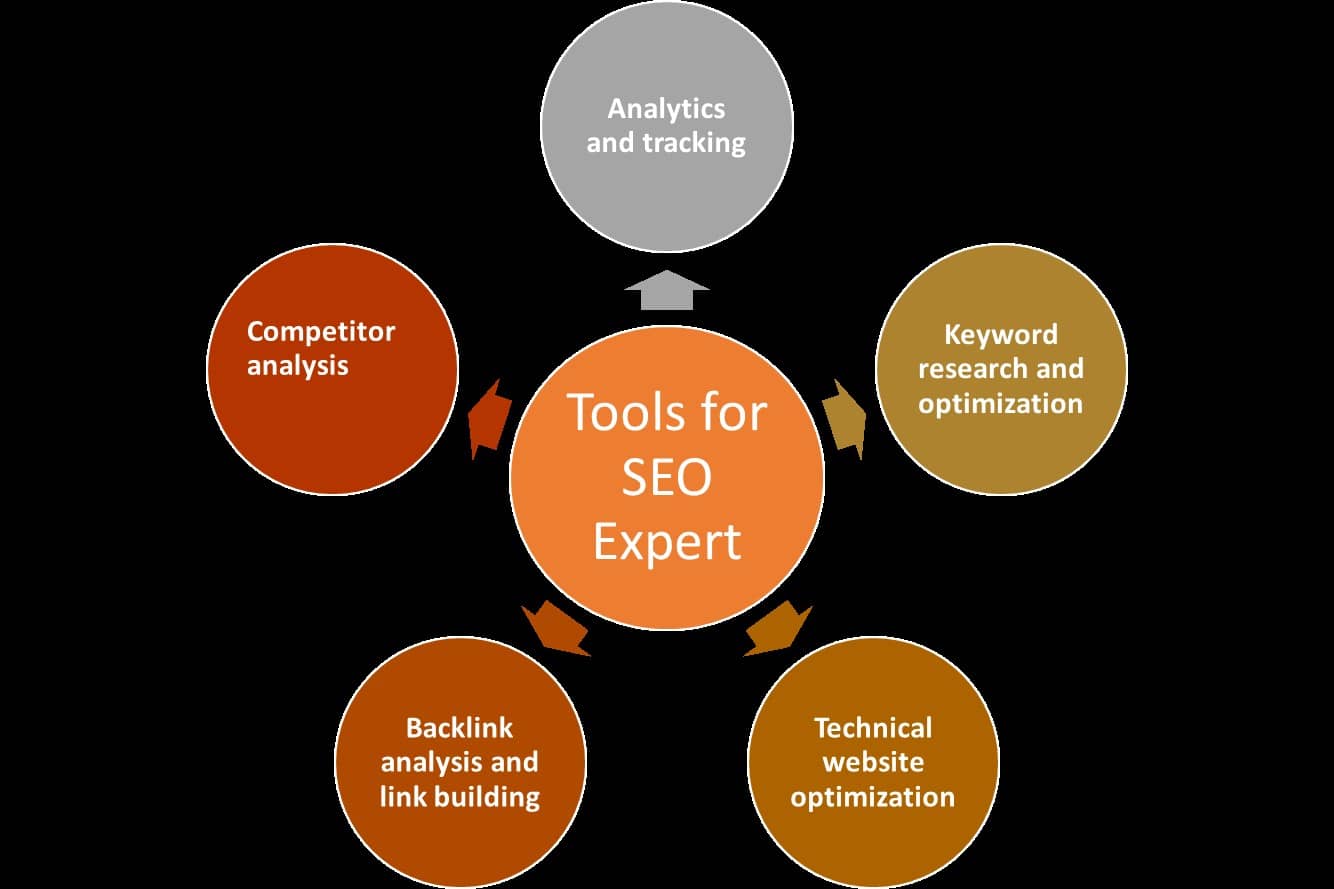Last Updated on October 6, 2024 by Admin
SEO has remained the most demanded marketing skill and competence. According to a recent study, 68% of all online experiences start at search engines, which provide 53.3% of the total website traffic.
Search engine optimization experts will face increasingly difficult challenges. SEO ensures that you win over your competitors. This article will examine the primary changes that should be made to become an SEO guru in the new year.
What Is an SEO Expert?
Search engine optimization (SEO) involves making a website visible on SERPs to improve its ranking. SEO specialists are adept at SEO services, user behavior, search engine algorithms, and methods of creating organic traffic and improving website ranking. Their skill set comprises keyword research, on-page optimization, technical SEO, link building, and analytics.
How to Become an SEO Expert? | Step-by-Step Guide
To be successful as an SEO expert requires a comprehensive and systematic development program, which includes patience, constant study, and practical practice. Here are the key steps you should follow to master the art and science of SEO:

1. Build a Strong Foundation in SEO
To achieve expertise in search engine optimization (SEO), one has to gain various skills, which together form the mastery dimension. Start by learning the fundamentals of SEO, including:
- Keyword research: Learn to identify and target the keywords your potential readers are searching for.
- On-page optimization: The areas where you need to pay more attention to improving your skills deal with the content composition and site structure that are search engine-friendly.
- Technical SEO: Make your site load faster, be mobile-friendly, and ensure crawlability. This will lead to adequate search engine indexing.
- Link building: Show the strategies for gaining good backlinks to elevate your website’s authority and rankings.
Alternatively, browse through a few HTML, CSS, basic web development concepts, and key SEO skills. This will help you better communicate with developers and make the right decision on-site optimization.
Moreover, you must focus on your ability to analyze and solve issues. SEO usually means the capacity of SEO specialists to understand the data, make sense of it, notice patterns in numbers, and develop creative responses to hard problems. Cultivate a data-driven mindset and practice making decisions based on facts rather than guesswork.
2. Investing in Your SEO Certification
The best way to improve your SEO is to attend classes and get SEO certifications. Such a planned learning course gives you a complete picture of SEO theory and its use in practice.
Some popular SEO courses and certifications include:
- Google Analytics Academy
- Moz Academy
- SEMrush Academy
- HubSpot Academy’s SEO Certification
- Coursera’s SEO Specialization
The range of these courses is very wide – from elementary to professional level. The course structure generally includes video lectures, quizzes, and tasks that allow you to practice what you learn in reality rather than only learning in a class.
3. Understand How Search Engines Crawl & Index Content
The most effective website optimization is grounded in understanding how search engines operate from the backend. Search engines perform three primary functions:

- Crawling: Spiders or crawlers are some of the names given to search engine bots, and they can visit and explore pages on the web by following links from one page to another.
- Indexing: After crawling the page, search engines analyze its content, structure, and relevance to determine whether it will be added to the index.
- Ranking: The user inputs a search query, and search engines display the best results from their index and organize the most relevant pages in their order of preference based on various parameters.
Having your SEO abilities, you seek to optimize the website to be found easily by the search engines, to be crawled and indexed. This involves:
- Developing an orderly site structure with a simple hierarchy and uncomplicated navigation.
- Creating descriptive and keyword-filled URLs enables us to know every page’s purpose.
- Syndicating an XML sitemap helps search engines locate and cascade your website’s pages.
- Speed up your site’s loading and make it mobile-friendly to ensure user satisfaction.
- Prevent technical problems hindering indexing, such as broken links, duplicate content, or crawl errors.
4. Align Your SEO Efforts with Search Engine Goals
Search engines attempt to maximize the output of relevant results for any user query. Their mission is to ensure that the content they publish is real-time, authoritative, and quality. The way to get a high rank in search results is to align your site with the goals of the search engines and satisfy the criteria they set.
Some key factors that search engines value include:

- Relevance: The content should be highly relevant to what the user is searching for and rich in information that addresses and resolves their purpose.
- Authority: Search engines rely on a site’s credibility and trustworthiness, which are determined by factors such as backlinks, domain age, and user engagement.
- User experience: A website’s interface should be designed to provide a good user experience, with fast loading times, easy navigation, and mobile-friendliness for good ranking.
- Fresh and updated content: The freshness of daily SEO content and the updating of existing pages signal that your website is active and important, which is favorable to search engines.
To know what Pursuers are looking for, always keep yourselves updated with the recent search engine ranking factors and algorithm changes. Google makes regular updates like “Page Experience Update” and “Helpful Content Update” to improve its ranking algorithms and reward sites prioritizing user-centric factors.
5. Regularly Test Your SEO Knowledge
Even though the theory of SEO is quite interesting and useful to apply, the practical experience of using it in real life makes one a true SEO expert. Working on SEO projects frequently is invaluable for testing your skills and establishing a strong grasp on this knowledge. With hands-on experience, it’s easier to stay sharp and responsive to the ever-changing landscape of SEO.
Some ways to test your SEO knowledge include:
- Optimizing your website: Start incorporating SEO best practices in your blog, portfolio, or business website. Try out different methods, evaluate the results, and apply what comes of it in the form of iteration.
- Taking on client projects: As an SEO provider, consider working with small enterprises, start-ups, and not-for-profit organizations. Establish clients’ goals fashion custom strategies, and produce positive results.
- Participating in case study challenges: Start by registering on online platforms or groups where you can tackle case study tests. Work on real-life scenarios, propose different solutions and compare yours with other experts’ views.
- Conducting SEO audits: Provide your network with SEO audits for your website. The audits should be comprehensive. To do this, technical issues, content holes, and link-building possibilities must be identified, and recommendations for improvement should be action-oriented.
6. What Skills Should an SEO Expert Know?
SEO is not merely a matter of tweaking the meta tags of a website.
The best SEO professionals are those who have mastered various digital marketing skills.
With that, here are the key skills that an SEO expert needs to have:
- Capability to come up with the high-search-volume, low-competition words.
- Basic understanding of HTML
- The best way to insert keywords into a webpage
- Intermediate to high-level copywriting skills will be the focus.
- Mastering visual content, such as video and infographics, is also critical.
- The capacity to make sure that all the important individual pages are well linked to each other.
- Appreciation of the odds of technical SEO influencing rankings.
- Sufficient understanding of the SEO up-to-date trends and the Google algorithm changes.
Tools for SEO Experts
To simplify the process of SEO and ensure data-driven decision-making, you have to employ different tools. Here are some essential tools for different areas of SEO:

1. Analytics and tracking
- Google Analytics
- Google Search Console
- SEMrush Position Tracking
These tools, in turn, facilitate deeper data analysis and metric utilization for better implementation and optimization of websites.
Using SEO analytics tools, the available data – such as organic traffic, click-through rate, bounce rate, conversion rates, and average engagement time – are the key points that should be observed.
2. Keyword research and optimization
- Google Keyword Planner
- SEMrush Keyword Magic Tool
- Ahrefs Keywords Explorer
SEO tools speed up keyword finding by suggesting keyword options, search volume, and difficulty level.
These tools allow you to find keywords that you can target, optimize the on-page content, and beat organic rankings. Moreover, they may trace keyword rankings and review domain standing over time.
3. Technical website optimization
- Google PageSpeed Insights
- Screaming Frog SEO Spider
- SEMrush Site Audit
Certain SEO tools can help you identify and repair any website issues or mistakes that might make it difficult for search engines to crawl and index your website.
They are equipped with tools that provide functionalities for problems such as finding 404 errors, duplicate content, missing meta tags, and many others.
4. Backlink analysis and link building
- Ahrefs Backlink Checker
- Moz Link Explorer
- SEMrush Backlink Analytics
The tools help identify the website’s backlink profile, including the total number of backlinks, referring domains, and anchor text distribution.
It is very important to evaluate the backlink performance and authority level and select optimal link-building tactics.
These tools can do this and look for chances where a website could get more backlinks.
5. Competitor analysis
- SEMrush Competitive Research Toolkit
- Ahrefs Site Explorer
- SpyFu
SEO tools are expert tools for spying on competitors as they provide analytical data, including their organic rankings, phrases they are targeting, and backlink profiles.
Without such tools, it can be difficult to accumulate the data needed to identify competitors’ strategies, benchmark your performance, and even discover new opportunities to outrank competitors in search engine results.
Well, that’s what the tools are for you, and without them, you are like the soldier who goes into the battle without a weapon.
Conclusion
To be a successful SEO expert, you must combine these technical skills with analytical abilities and real-life experience. By applying the tips in this post and continuously sharpening your skills, you are sure to qualify as a known SEO expert. Nevertheless, learning SEO and achieving permanent results in this field takes time and effort, and keeping up with the fast-paced search engine environment is difficult. It is this role that AlgoSaga SEO company can assume to help you.
